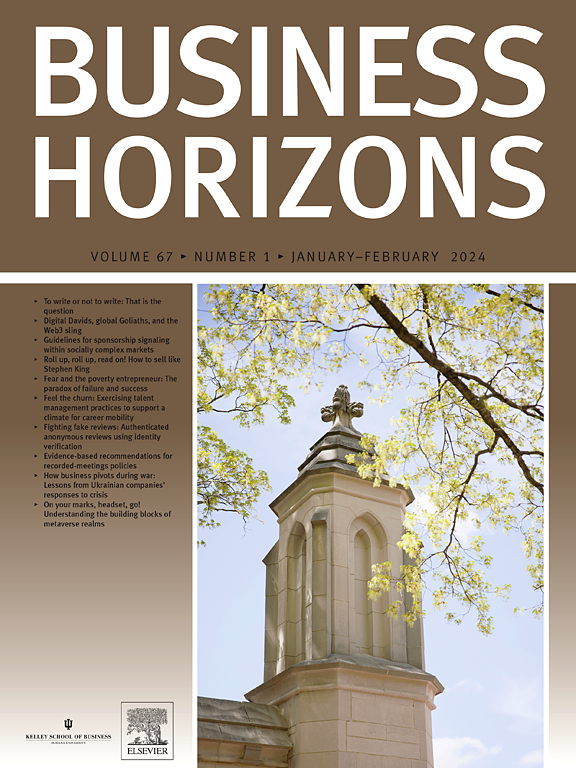Business engagement in hybrid political orders: Examples from the Niger Delta
IF 7
3区 管理学
Q1 BUSINESS
引用次数: 0
Abstract
In many postconflict contexts, partnerships between a corporation and the state precede the introduction of large-scale investment, especially as these partnerships are essential to acquiring the former’s license to operate. However, in such contexts, the exercise of authority often differs from the assumptions implicit in the Weberian configurations of the state. As a result, local, informal, and nonstate actors unrecognized as formal authorities (e.g., militias, gangs, insurgents, and local organizations and groups possessing localized authority) may exercise governmental authority on those within their sphere of control. These informal authorities have become known in the literature as hybrid political orders. Against this backdrop, companies find that while establishing a formal agreement with state institutions is a significant precondition to operate legitimately in hybrid political orders, it is also necessary to engage with actors that exercise informal forms of authority to secure their social license to operate. However, tensions between these forms of authority can draw companies into a web of conflict and pose significant risks to their operations. Drawing examples from the Niger Delta, this article discusses how interactions between formal and informal authority actors in postconflict contexts can produce different contextual outcomes (e.g., contestation and collaboration) with their own risks to company operations. I offer guidance on how firms can leverage their positions as bridge builders to forge collaboration among contesting actors to reduce violence and manage conflict.
混合政治秩序下的商业参与:来自尼日尔三角洲的例子
在许多冲突后的情况下,公司和国家之间的合作关系先于大规模投资的引入,尤其是在这些合作关系对获得前者的经营许可证至关重要的情况下。然而,在这种情况下,权力的行使往往不同于隐含在韦伯国家结构中的假设。因此,未被承认为正式当局的地方、非正式和非国家行为体(例如,民兵、帮派、叛乱分子和拥有地方权威的地方组织和团体)可能会对其控制范围内的人行使政府权威。这些非正式的权威在文献中被称为混合政治秩序。在这种背景下,企业发现,虽然与国家机构建立正式协议是在混合政治秩序中合法经营的重要先决条件,但也有必要与行使非正式权力的行为体接触,以确保其经营的社会许可证。然而,这些形式的权力之间的紧张关系可能会使公司陷入冲突的网络,并对其运营构成重大风险。本文以尼日尔三角洲为例,讨论了冲突后背景下正式和非正式权威参与者之间的互动如何产生不同的背景结果(例如,争论和合作),并给公司运营带来风险。我就企业如何利用其作为桥梁建设者的地位,在竞争行为者之间建立合作,以减少暴力和管理冲突提供指导。
本文章由计算机程序翻译,如有差异,请以英文原文为准。
求助全文
约1分钟内获得全文
求助全文
来源期刊

Business Horizons
BUSINESS-
CiteScore
17.70
自引率
5.40%
发文量
105
期刊介绍:
Business Horizons, the bimonthly journal of the Kelley School of Business at Indiana University, is dedicated to publishing original articles that appeal to both business academics and practitioners. Our editorial focus is on covering a diverse array of topics within the broader field of business, with a particular emphasis on identifying critical business issues and proposing practical solutions. Our goal is to inspire readers to approach business practices from new and innovative perspectives. Business Horizons occupies a distinctive position among business publications by offering articles that strike a balance between academic rigor and practical relevance. As such, our articles are grounded in scholarly research yet presented in a clear and accessible format, making them relevant to a broad audience within the business community.
 求助内容:
求助内容: 应助结果提醒方式:
应助结果提醒方式:


